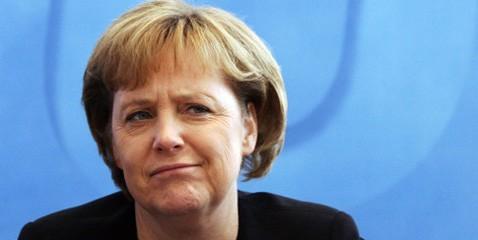
RUSSIAN DAVOS CONCERNED

As they arrived at the Peterhof Palace on Thursday night, guests were greeted by the sounds of Handel's Water Music and bowing courtiers resplendent in powdered wigs, stately gowns and buckled shoes.
It was a reception worthy of Peter the Great, the tsar who had the grand palace built 300 years ago as a replica of Versailles. It was thrown by state-owned Sberbank, Russia's largest lender, for those who braved western sanctions and Washington's warnings to attend the St Petersburg International Economic Forum, Russia's Davos.
Herman Gref, Sberbank chief executive and a former economy minister during the first half of Russian president Vladimir Putin's 14 years in power, treated his 300 guests to a nine-course dinner and a show featuring the best of European opera and theatre.
"This is Europe, only on a so much grander scale," said Ulrich Wendt, former mayor of the German town of Baden Baden and owner of a Russia-focused consulting company, as the gilded statues in the palace's fountain reflected the fireworks illuminating the evening sky.
But even the rapture at a Russia set in a European scene was not quite enough to cover the geopolitical tension that has driven a wedge between the hosts and their western guests.
More than one foreign attendee noted that Peterhof was a worthy backdrop for the disconnect. While Peter the Great and his successors made the palace a symbol of their obsession with Europe – with ever grander collections of European art – Peter's main purpose for building it was as a base for a navy to counter Europe.
Mr Gref cranked up his charm to woo those foreigners who had come. On the hydrofoil speedboat that whisked them to the palace, he spent 20 minutes chatting with Bruno di Leo, a vice-president from IBM and one of the few US executives present.
But the champagne toasts at Peterhof repeatedly turned sour as disagreements broke out over whether Russia or the west was to blame for the Ukraine crisis.
"I have so many foreign clients, I've always been for a liberal and open Russia, but this [crisis] has thoroughly disillusioned me with the west," said Oleg Rumyantsev, a Russian consultant who has worked with companies such as Mars, Shell and BP.
Russian executives argued that western pressure against Russia would only accelerate a pivot towards Asia after Mr Putin signed a 30-year gas supply deal with China on the eve of the conference.
"Honestly, I don't see any problem related to sanctions," said Gennady Timchenko, the energy investor who is one of Russia's richest men and was sanctioned by the US in March. "The turn to China is very interesting for me – I personally will now work actively in this direction," he said.
Andrei Guriev, CEO of Phosagro, said western banks' increased caution about dealing in Russia marked "a fantastic opportunity for Asian banks to get into the Russian market".
The forum saw a sharp drop in attendance among top executives of foreign companies, with the CEOs of Goldman Sachs, PepsiCo and Siemens all pulling out.
"Some people are not here, that's their problem," said Eric Liron, first vice-president at Rosneft, whose chief executive, Igor Sechin, has been sanctioned by the US. "We don't feel threatened at all," Mr Liron said. "Every day we have new technologies offered to us."
But the mood in the cubicles where executives met to talk business was sometimes grim. "Every meeting starts with 'Holy s**t, how did things get this bad?'" said an executive at a Russian company who met four foreign banks on Thursday to negotiate a more than $200m financing deal.
"The Ukrainian situation affected us more than we expected," Mr Gref admitted, estimating economic growth would be between minus 0.5 and 0.5 per cent this year. Bernard Sucher, a director of Aton brokerage, cited other metrics. "There are fewer people, fewer pretty girls – there is a certainly a crisis-type mood," he said.
Mr Putin pledged to take steps to "drastically change" the structure of Russia's economy and improve the investment climate. But that promise has been made many times before.
"The real issue is being talked about a lot: how do we fix this negative risk premium that developed on the capital market on Russia well before Ukraine," said a board member at a large Russian company.
"It is like being on the inside of a big grey cloud, and we will only get out of that if we address rule of law, transparency, diversification, corruption."
ft.com





